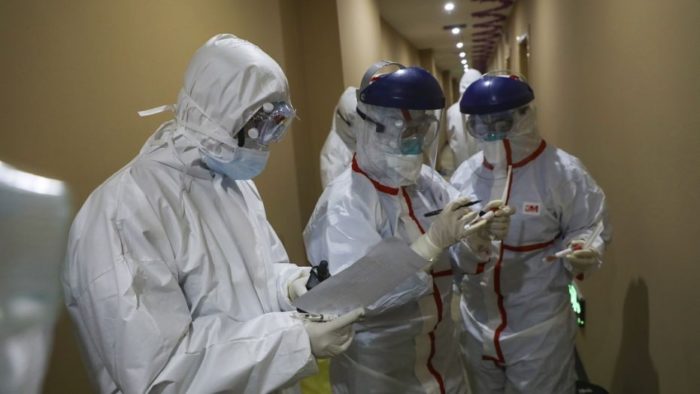Pestilence and Plague
Grab your hand sanitizer! Cancel that birthday party! Avoid crowded places! The plague is upon us! …No, not influenza, even though it infects and kills tens of thousands every year. I’m talking about the latest incarnation of the coronavirus, which is not named after a Mexican beer. But pick up some limes for the Vitamin C, just in case!
While not as deadly as the yearly flu strains or the SARS epidemic (yet), this particular manifestation of the coronavirus, officially designated 2019-nCoV, is a serious threat. Hundreds have died, thousands are infected, and the world’s most populous country has essentially ground to a halt. I have a personal connection to this mayhem: my wife is Chinese and her hometown is an hour away from Wuhan where the virus originated. She lives here in the US but her family and friends are dealing with the fallout from the outbreak, which shows no signs of slowing down. I lived in China for a number of years and I remember when “bird flu” was on the tip of everyone’s tongue, and handheld temperature scanners were brandished at almost every door. This latest outbreak is more viral and more deadly, however, and world officials are scrambling to contain the damage, leading to some draconian but perhaps necessary measures.
It’s impossible not to think about the fictionalized treatment of epidemics when we are bombarded by hourly news updates about the real thing. Countless books, movies, and TV shows depict a sensational view of the havoc a virus can inflict upon the human race. The most popular is some form of zombism, with movies like 28 Days Later and TV shows like The Walking Dead pitting the infected against the immune (or the infected-and-dead against the infected-yet-still-alive). Governments collapse, societies crumble, and everyone turns into Mad Max with an endless supply of bullets. Sometimes the infections are deliberate (12 Monkeys), sometimes alien (The Invasion), and sometimes ridiculous (The Happening). Perhaps the most realistic movie about a viral outbreak is Contagion, and where does the virus originate? Take a guess.
The greatest threat to humanity has always been disease (nuclear weapons are under lock and key; a viral outbreak is unpredictable and knows no borders and follows no strategy). The Bible mentions plagues on a number of occasions, sometimes as judgment against pagans (Exodus 9:11) and against the nation of Israel (Lev. 21:26, Num. 16:49). Yet the Bible is also clear that God hates sickness and He promises to deliver His people from death and disease (Deut. 7:15, Jer. 30:17). Jesus healed countless people as part of His ministry on Earth, fulfilling the prophecies of Isaiah. After the final judgment, those who have placed their trust in Christ for salvation shall be given new bodies that will never know sickness or death.
But what about now? Fortunately, modern medicine is good at catching these illnesses before they become widespread, but our global society also makes it easier for disease to spread before it appears on government radars. With the news media feeding us a continuous body count, it’s easy to get scared and paranoid. We should absolutely do our best to live clean, healthy lives, but our ultimate faith shouldn’t be in doctors and hospitals. There is nothing out of God’s hands, and all of creation submits to His sovereign will, from the mightiest emperor to the smallest virus.
Pass the hand sanitizer, please.






































